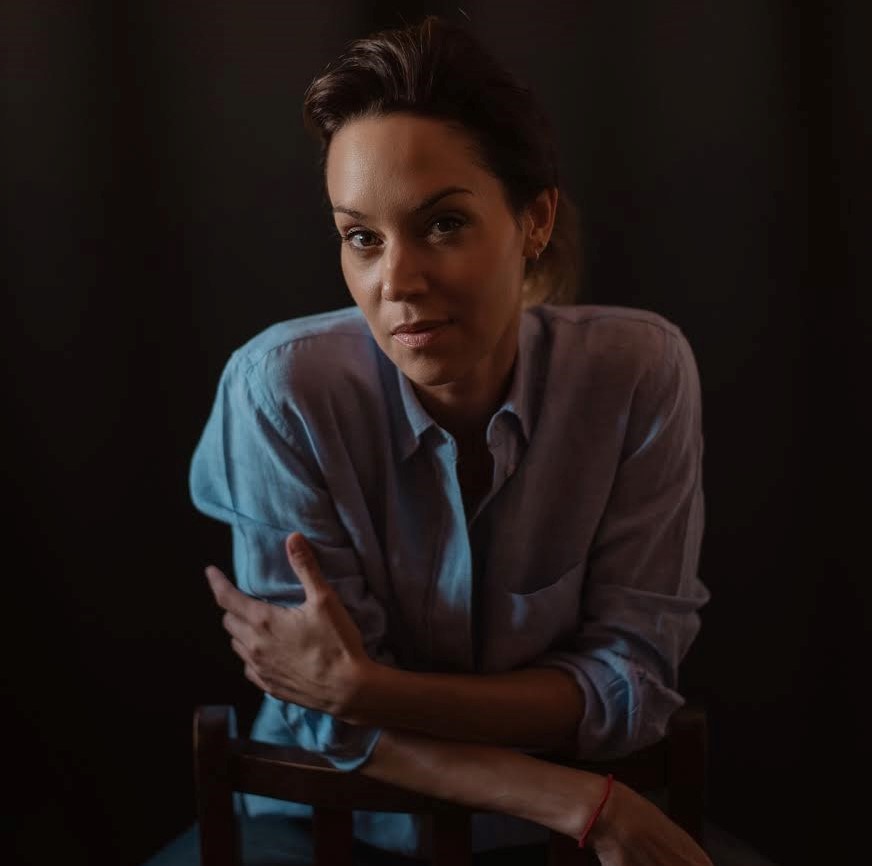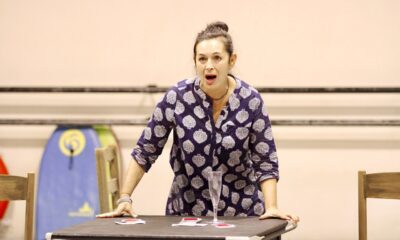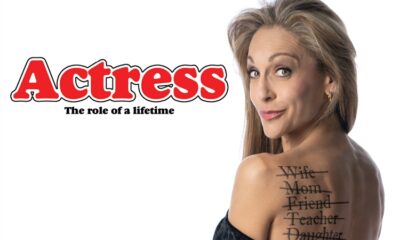
Lifestyle

Shannon Esra bares her soul in My Left Breast
Award-winning South African Jewish actress Shannon Esra will be appearing in My Left Breast at Theatre on the Square in Sandton. The SA Jewish Report spoke to her before going on stage.
What drew you to acting?
That’s like asking me what drew me to draw breath. It has always been the most natural thing in the world to me.
What do you remember of being in your Purim play at nursery school at the age of four?
It’s an interesting question, because I have photos of it and I’m not entirely sure the memories of the day aren’t a response to the pictures I know so well. I do remember singing songs about Esther and Haman, I remember how happy I felt to see my mom watching me, singing along. I remember my teachers and friends, and the warmth of that day. There were many of these mini concerts at nursery school. So perhaps a lot of the memories may be blurring together. I was very little, but I do know that I loved performing. I loved to sing and dance and make people smile. It made me feel special, I suppose.
What made you want to play this role in My Left Breast again?
It’s a beautiful thing to embody someone else’s experience, to forget yourself in the pursuit of relaying someone else’s love, pain, and healing. It’s a seductive process to surrender to the intimate interpretation of another’s life. It’s also a challenge to push myself into spaces I may not be entirely comfortable with to grow, to transform. Every part I play leaves an indelible mark on me.
This role delves into some of the toughest and most poignant issues women deal with. How do you reach into those sometimes-dark places to portray these painful things to an audience?
Through breath, pace, and being present in the words themselves. It’s all there in the script, and technically speaking, when you know each word written on that page, when you get so deep into the writing, the story, and the meaning, the familiarity of it allows you to fall into it. It just comes. It’s hard to explain.
You’re being directed by a former drama teacher. How did this happen? What’s your relationship with her like, and what has it been like working with her now?
Janet Baylis, my director, was my high school drama teacher from Grade 9. Over the years since I matriculated, Jan and I have always remained in touch, and she happened to reach out to me last September to ask me what that play was that I did in my first year at the University of the Witwatersrand about “the breast”. Jan had, of course, come to watch the 20-minute, highly-abridged version I was cast in in 2000. I laughed and I said, “Oh, My Left Breast by Susan Miller.” To which she responded, “I think you’re old enough to really give it a go, would you be interested?” I didn’t even blink! It was always going to be yes. To be given the opportunity to revisit the full text in its entirety and to work with my mentor was a dream I never knew I had, but one I knew I needed. Jan’s presence in my life throughout high school shaped me in many ways. She was a safe space and a beacon of light and hope when I struggled with feeling misunderstood at home or with friends. Jan always believed in me, and I needed that from her. It’s been the greatest gift working with her.
You have an extraordinary career. Have you had to give up anything in pursuit of it? If so, what?
Honestly, I’ve been fortunate that the things I’ve wanted have almost always been in alignment with my work. My work is my greatest passion and joy. I think that’s been more difficult for the relationships I’ve had throughout my life. My work is one of the very few spaces in my life that I’m unwilling to compromise on. It’s so much of who I am, and what sets my soul ablaze. And it’s never been about fame or celebrity. I just love being someone else and being able to shift a person’s perspective, inspire someone, or move them. It’s my way of giving back, I suppose.
Describe what it takes for you to get into a character and become that person.
It’s mostly there, simply in the words. I do, however, have a thing about never wearing my own shoes. I can’t be in my own shoes and be the character at the same time – something happens in my feet from the ground up.
You’ve made your name internationally in roles like The Queen, and The River on television and screen. What drew you back on stage?
Working with Jan for one! And, theatre is home. It’s where I began, and it felt natural to return. Theatre encompasses a whole different set of technical skills and challenges which I needed to sharpen and confront. It also asks you to be brave. I always seek the next challenge.
Do you have a preference for certain platforms, such as stage, film, or television? How does performing differ on these platforms?
Honestly, I love any element of performing. Each medium has its own unique set of risks and challenges. Having spent the majority of my 27-year career in television and film, I’m accustomed to being on set for long, intensive periods, where you become this family which is creating an imaginary world in secret, far away from real life as you know it. On set, it’s almost as if you’re doing battle together – you’re in the trenches, getting muddied and bloodied together to create something of substance for people to watch at a later stage. On set, you have spaces and places to hide and take shelter; if you make a mistake, you get to go for another take – TV and film is a far more forgiving medium for an actor. And it’s only months to a year later when audiences get to watch the show from the comfort of their homes or a cinema. And for the most part, as the actor, you’ve completely moved on.
Theatre is live, immediate, and all-encompassing. There you are, up on stage, on your own – in a one-woman show – and it truly is one of the most exposed, raw, and vulnerable spaces to be. I have nowhere to hide. If I make a mistake, only I can correct it, and pray no-one notices. Theatre offers a connection with the audience right from the time they walk into the theatre. In this particular production, there’s a palpable immediacy and intimacy. On top of that, the adrenaline, the high, the connection – it’s potent and almost indescribable.
What has been your most challenging role to date and why?
Candice from M-Net’s Still Breathing. Candice has a complicated storyline. It’s not every day that you meet a character who has been having a 20-year-long affair with her best friend’s husband. I knew Candice would be harshly judged by viewers, and it was important for me to understand and interpret the pain, anguish, shame, and guilt that accompanied her choice to stay in a relationship with a married man, and to deceive her best friend every day. Candice was immensely layered, and I wanted to approach her with love and tenderness. As actors, it’s not our job to judge the people we play, it’s our job to give them life as honestly as we can.
You were born Shannon Esrechowitz. Why did you change your name?
Legally, my name is still Esrechowitz. Esra is my professional name. There were two reasons: first, Esrechowitz is a mouthful, and people battled to spell and pronounce it correctly. And second, back in the day when phone books existed, my grandmother was at the receiving end of some very unfortunate sexually charged phone calls. It made sense to abbreviate it.
Do you see yourself as a part of the Jewish community? What does it mean for you?
Of course! I went to a Jewish nursery school and Hebrew school every Sunday from the time I was eight until I had my Batmitzvah. Community for me is family, it’s a place of belonging. I believe knowing where you belong is a fundamental aspect of a happy life.
What’s the message you want people to take home from My Left Breast?
It’s okay to laugh at hard things – and we must laugh. Life is filled with light and shade. It’s okay if healing feels hard – it’s not a straight line. Love is love, and we’re on this planet to connect, to find a sense of belonging and purpose, and so much of that is experienced by sharing space and vulnerability. Life is dynamic and complex, and it’s also simple. We’re all more alike than we think we are.
My Left Breast is on at the Theatre on the Square from 7 to 11 May










